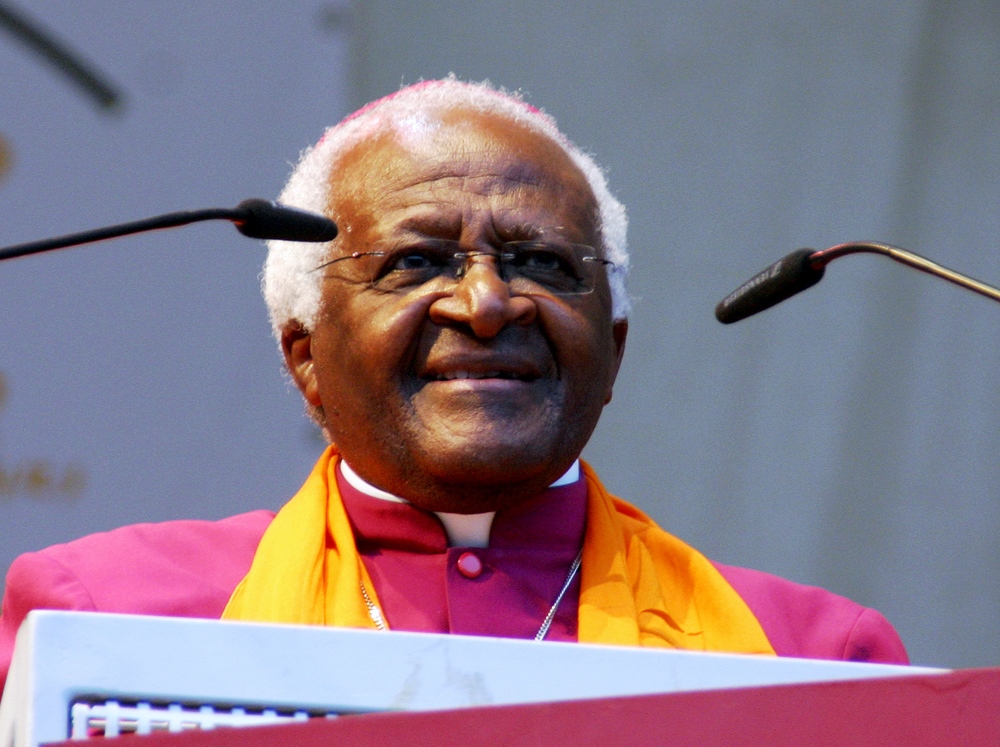Every two years, the German Evangelical Church, which is a federation of the Lutheran and Reformed church denominations in Germany, holds the Kirchentag, or Church Assembly. This five-day congress brings together between 100,000 and 200,000 visitors.
This year, dissatisfied with the Kirchentag’s non-acceptance of their program submissions, a coalition of several church-based networks in Germany devoted to activism for Palestinian rights has organized an “alternative” Kirchentag conference, to be held on June 5-6 in the city of Stuttgart at a venue close by the main Kirchentag in Stuttgart. Titled “Justice brings peace: Breaking the Silence on Palestine and Israel,” this alternative conference stands in the great tradition of Kairos, challenging the church to fulfill its sacred calling.
It is not a small thing for German Christians to put forward this kind of message in a country whose government — and what is effectively its national church — has adopted official policies calling for unqualified support for the State of Israel as the Jewish homeland. Appropriately, Archbishop Desmond Tutu has written an open letter to the German Evangelical Church Assembly that boldly articulates that challenge. The key issues are put forth clearly — with no possibility for misinterpretation — the Archbishop invokes the majestic “Moment of Truth” Palestine Kairos document, urging the church “to stand alongside the oppressed and preserve the word of God as good news for all rather than turn it into a weapon with which to slay the oppressed.”
Reminding the Kirchentag of the role it played in the anti-apartheid struggle by closing its accounts with Deutsche Bank because of the bank’s involvement with South Africa, the Archbishop calls on the church to “us[e] its power actively and compassionately for justice.” He comes right to the point about what is required today: “We commit to promoting in both churches and in our societies the Kairos call, which echoes Palestinian civil society demands, for the implementation of boycott, divestment, and sanctions as appropriate non-violent avenues of creative resistance until the illegal Israeli occupation is brought to an end.”
And then the kicker, naming the elephant in the room: “BDS is not anti-Semitism!” declares the Archbishop. “Do business with Jews, organize with them, love them. But don’t support – militarily, economically or politically – the machinery of an apartheid-state. We can’t do business as normal because conditions in the Holy Land are totally abnormal.” “As Christians,” Tutu reminds the leaders of the Kirchentag, “it is our duty to side with the oppressed, the downtrodden, the poor, the prejudiced and unjustly treated – ALWAYS. There is no place for neutrality, because it favors the oppressors. ALWAYS.”
And so that there remain no confusion, barring the door to further argument based on preserving Christian-Jewish relations by avoiding that most feared of all accusations: “Beware of anti-Semitism, and all other forms of racism, but beware also of being cowed into silence by those who seek to stifle criticism of the oppressive politics of Israel by labeling you anti-Semitic.”
Tutu’s charge rings out to all of us on this Pentecost, wherever we are on the globe: “Please,” he enjoins the Protestant church of Germany, and all institutions across the globe that claim to stand for justice and compassion, “join the ecumenical Kairos movement and raise your voice in public solidarity to liberate Palestine so that Israel can be free, too.”















Florence Steichen says
This is heartening news!